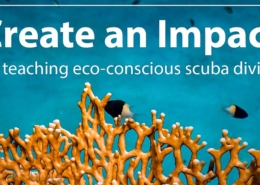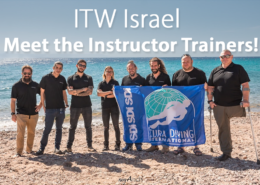Why Does the Dive Industry Need an Indoor Diver Certification?
If you have been in the industry for any amount of time, the answer to the question “Why do we need an indoor certification” should be self-evident. If it is not, or you are new to the industry, my aim is to explain SDI’s perspective on the why.
SDI’s Perspective
For as long as I have been in the industry (almost 30 years) the question has been posed: “Is a diver who has been trained in warm tropical waters qualified to dive in colder, lower visibility water?” In my experience speaking with instructors and dive operators around the world, the consensus is, no. So, would a diver that has done at least half of their training in a large, indoor pool be qualified to dive in open water?
Now…SDI states in our materials that divers should seek local orientation when changing dive locations and makes it clear that divers are certified to dive in conditions similar to those they were trained in. SDI standards also require four dives to be completed in open water. But, does one or two dives (of the four required for open water certification) in an indoor, controlled environment, give a diver the experience they need to be proficient in open water? At least two agencies out there say yes. SDI does not think so. Why would the industry want to further separate the training experience from the real-world experience?
Let me put this into context. I am talking about large indoor pools, not confined water that provides a level of protection from the natural elements. Pools such as Deep Dubai or Nemo33. Divers doing even two dives in these very controlled conditions are missing out on very important knowledge and experience that will benefit them as independent divers. This valuable experience depends on the traditional open water dives. Some examples could include:
- Surface chop or waves
- Currents or surge
- Thermoclines
- Changes in visibility
- Entry/exit procedures
- Changes in weather during the dive
In many locations around the world, instructors are moving away from counting dives in a controlled environment toward open water certification dives. Instead, as one example, many instructors are requiring two shore dives and then at least two boat dives, giving divers the tools they need to be successful. Think of it this way; they have already done dives and performed skills in a pool, and that same pool should now count toward open water dives? SDI does not think so.
The Indoor Diver Certification
Indoor diving facilities are great locations and perfect for divers who may not want to dive in open natural bodies of water. But training is still needed, so SDI has launched the Indoor Diver certification to meet this need.
These facilities are also great for certified divers who want to dive in the off-season, during harsh weather, or just want to stay proficient. And no additional training is required for a certified open water diver to dive indoors.
Also, great news for SDI Open Water Scuba Instructors: You can teach the SDI Indoor Diver course with:
- No additional training
- No additional materials
- No additional forms
- In other words, there is nothing extra you need to do!
To be honest, there actually is one thing an SDI Open Water Scuba Instructor needs to do if located near one of these facilities, and that is promote the course. What do you need to promote the Indoor Diver course? You already have everything you need. SDI built the Indoor Diver course to use the SDI Open Water Scuba Diver materials, including the online course. Why? Because physics and physiology don’t change, so 90 percent of the Open Water course content still applies. We did, however, remove some things from the required topics that do not apply, such as marine life, waves, currents, and boat entries.
We have also made the upgrade process from SDI Indoor Diver to SDI Open Water Scuba Diver simple: Complete two dives in an open body of water and cover the topics not included in the Indoor Diver course that do apply to natural bodies of water with an active SDI Instructor.
Read the full course description and standards here!











Hagyj válaszolni
Szeretne csatlakozni a vitához?Nyugodtan járulj hozzá!